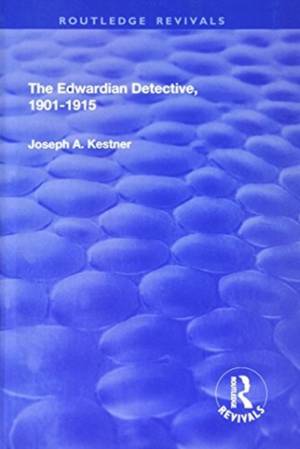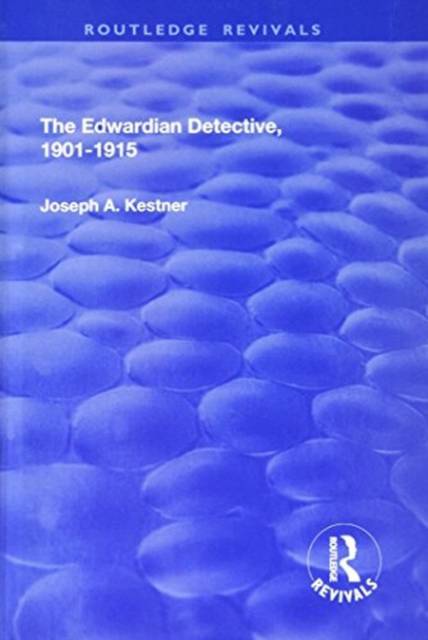
- Retrait gratuit dans votre magasin Club
- 7.000.000 titres dans notre catalogue
- Payer en toute sécurité
- Toujours un magasin près de chez vous
- Retrait gratuit dans votre magasin Club
- 7.000.0000 titres dans notre catalogue
- Payer en toute sécurité
- Toujours un magasin près de chez vous
Description
This title was first published in 1999: Examines the range of detective literature produced between 1901 and 1915 in Britain, during the reign of Edward VII and the early reign of George V. The book assesses the literature as cultural history, with a focus on issues such as legal reform, marital reform, surveillance, Germanophobia, masculinity/femininity, the "best-seller", the arms race, international diplomacy and the concept of "popular" literature. The work also addresses specific issues related to the relationship of law to literature, such as: the law in literature; the law as literature, the role of literature in surveillance and policing; the interpretation of legal issues by literature; the degree to which literature describes and interprets law; the description of legal processes in detective literature; and the connections between detective literature and cultural practices and transitions. The book investigates many of the "canonical" and less canonical writers of detective literature, focusing on major figures including Conan Doyle, Chesterton, Bennett, Conrad and Buchan, but also reinvestigating writers such as Bramah, Mason, Barr, Bentley, Prichard and Childers. Important women writers of the genre are also discussed, including Lowndes, Orczy and Meade.
Spécifications
Parties prenantes
- Auteur(s) :
- Editeur:
Contenu
- Nombre de pages :
- 424
- Langue:
- Anglais
- Collection :
Caractéristiques
- EAN:
- 9781138633988
- Date de parution :
- 02-11-17
- Format:
- Livre relié
- Format numérique:
- Genaaid
- Dimensions :
- 154 mm x 232 mm
- Poids :
- 939 g

Les avis
Nous publions uniquement les avis qui respectent les conditions requises. Consultez nos conditions pour les avis.






